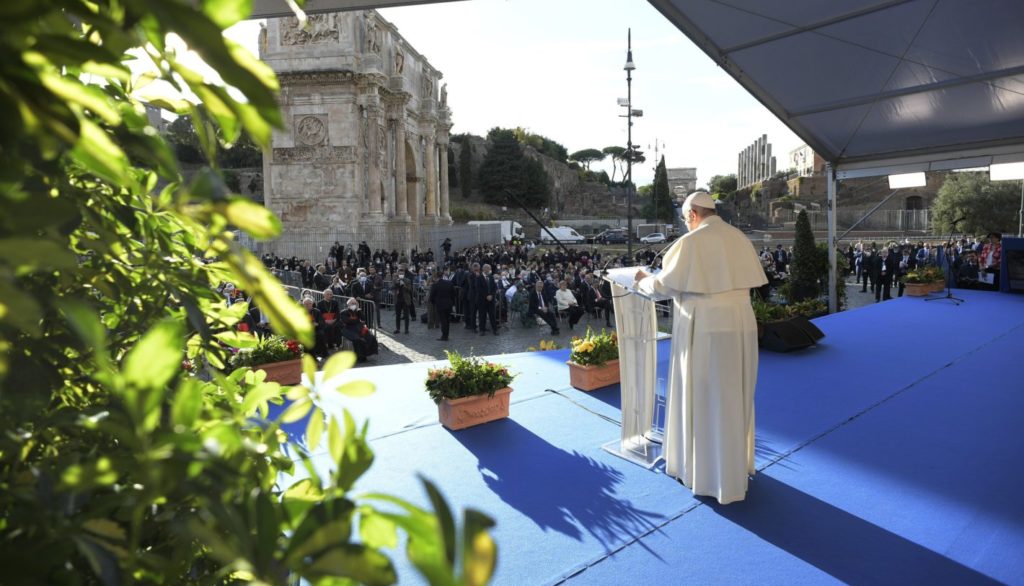 World Day of Peace: Prophets and witnesses of the "culture of care".
World Day of Peace: Prophets and witnesses of the "culture of care". World Day of Peace: overcoming the "globalization of indifference".
World Day of Peace: overcoming the "globalization of indifference".The figures are dramatic: according to the latest available data, in June 2021 there are more than 4.5 million official deaths due to wars and conflicts of all kinds in various parts of the world. It is enough to listen again to Pope Francis' Urbi et Orbi on Christmas Day to have an estimate of the global situation in all regions of the planet. 40 million people are food insecure, according to Save the Children estimates. Of these, 5.7 million are children under the age of five who are on the brink of hunger, an increase of 50% over 2019.
To this must be added the impact of the climate crisis: floods, droughts, hurricanes, forest fires... not to mention the numerous problems caused by the Covid-19 pandemic, to the detriment above all of the most vulnerable, who have seen their problems multiply. At the same time, military spending is increasing dramatically, reaching $2 trillion worldwide.
In this context, the Church is celebrating the 55th World Day of Peace on January 1, 2022, which looks at the global situation of the planet not only in terms of armed conflicts, but also in terms of the concrete resolution of the many threats to the future of humanity.
It is not by chance that, in his message written for the occasion, Pope Francis proposes in an unusual way three alternative instruments "to build a lasting peace". And when we speak of peace we also mean rebirth from the rubble and hope for a better future for all those who suffer all kinds of violence and abuse. The "three paths" proposed by the Pontiff refer to: dialogue between generations as the basis for the construction of shared projects; education for freedom, responsibility and development; work, as the full expression of human dignity.
In the Pope's intentions, these are aspects that are at the basis of a true "social pact", which must be designed through a disinterested "craftsmanship" - as he had already indicated in previous messages - that must involve each individual and, therefore, the whole collectivity.
Why is "dialogue between generations" important for peace? Because it is through free and respectful confrontation that mutual trust is generated - Francis reflects - we listen to each other, we come to an agreement and we walk together. The different generations, which have often been divided by economic and technological development, must once again become allies, and this is possible through dialogue "between the custodians of memory - the elders - and those who carry history forward - the young".
To build together a path to peace, we cannot ignore education, precisely to make citizens more aware of their freedom and responsibility. In this regard, we must reverse the course that allocates an exorbitant investment to military spending while depriving education of significant slices of funding. Indeed, investment in education contributes to resolving the many fractures in society if this approach is truly part of a "global pact" that expands the many cultural riches and involves families, communities, schools, universities and all institutions.
Finally, work, "an indispensable factor in building and preserving peace", precisely because it is an expression of "commitment, effort, collaboration with others", "the place where we learn to make our contribution to a more livable and beautiful world". However, there are many injustices in this world, denounced by the Pope: precariousness, the lack of prospects for young people, the lack of legislative recognition of migrant workers, the absence in many cases of welfare systems and social protection. In this sense, therefore, the Pontiff's invitation is to "unite ideas and efforts to create the conditions and invent solutions, so that every human being of working age has the possibility, through his work, to contribute to the life of the family and of society".











